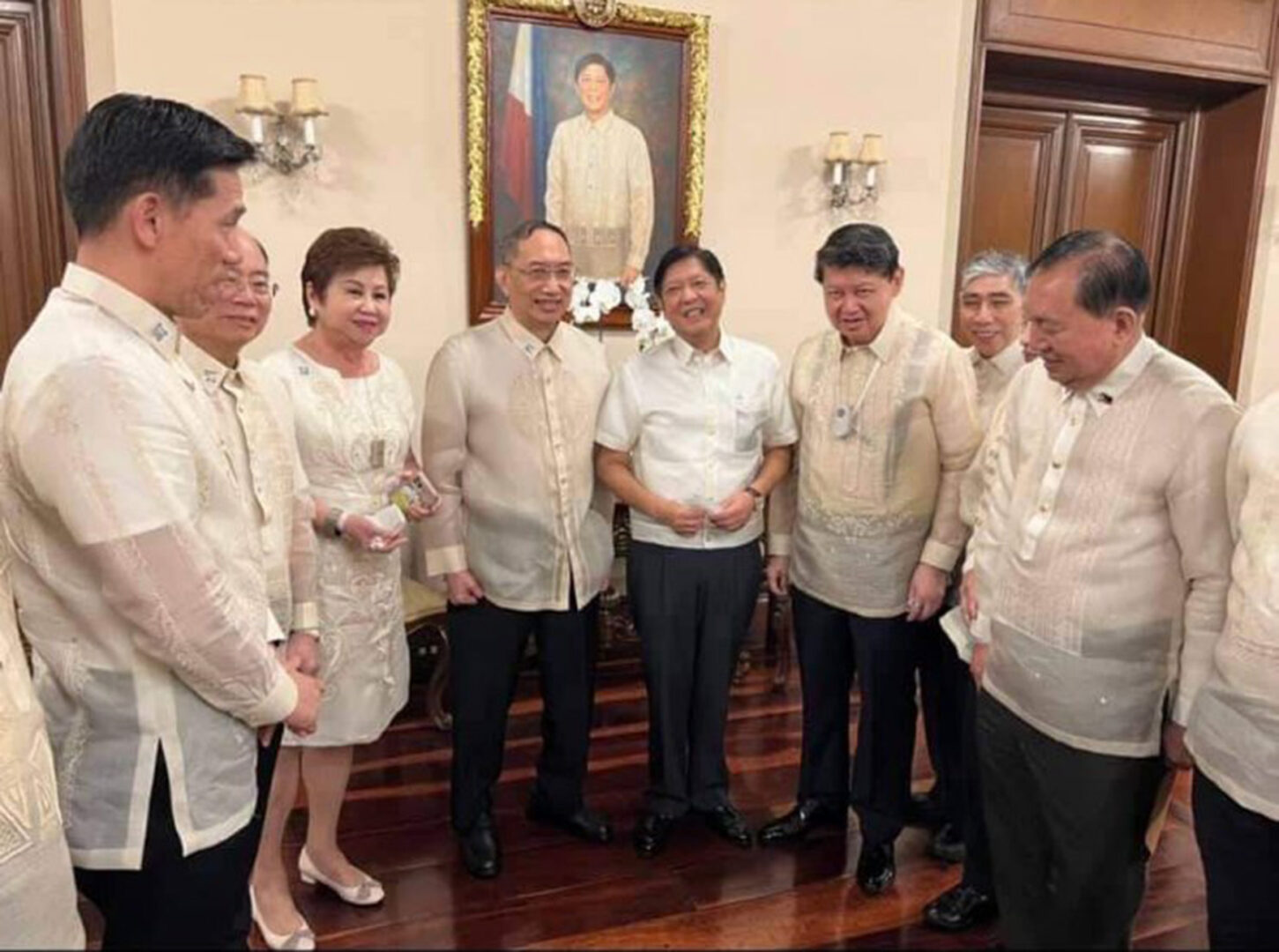Filipino-Chinese executives recently presented their program to sustain the momentum of the economy to hit the government’s 7 percent target during a meeting with President Ferdinand “Bongbong” Marcos recently.
Federation of Filipino Chinese Chamber of Commerce and Industry Inc. president Henry Lim Bon Liong, said his group remains optimistic about the country’s macroeconomic strength.
“Our GDP grew 5.7 percent in 2021, and 7.8 percent in the first half of this year. We at FFCCCII are hopeful that we can attain economic growth of between 6.5 percent to 7.5 percent this year. Recently, the Asian Development Bank forecasted the Philippine economy to grow by 6.5 percent in 2022,” Lim said.
Further, he said his group also remains confident in the government’s economic team led by Finance Secretary Benjamin Diokno, Bangko Sentral Governor Felipe Medalla, NEDA Secretary Arsenio Balisacan, and others, believing that the country is on the right track to continued economic recovery.
Concerns raised
The FFCCCII has also presented to the President about immediate concerns on trade and industry, transportation, energy, fiscal policies, employment, peace and order, promotion of Philippines-China relations, investments, and education, among others.
“We call on the government to embark on projects and modernization of systems to better support the growth of industries. Particularly in agriculture, to encourage investments in agriculture and support our farmers. With the rising cost of prices that are felt around the world, we need to have a strong agriculture sector to ensure the food self-sufficiency of our country,” he said.
For transportation, the group president said the country needs a comprehensive transportation infrastructure development to spur tourism, encourage investments in all regions, ease traffic congestion in Metro Manila and major cities, ensure faster delivery of goods, and welcomes the “Build, Better, More” infrastructure program of President Marcos’ administration.
Regarding energy concerns, Lim told the President to support the development of a viable energy sector that would provide stable, lower-cost energy to Filipinos, as high electricity cost remains a continuing challenge to businesses.
“To have more sustainable revenue growth, there is a need to continue improving the tax system to help businesses in our country compete better with our Asian neighbors. This will bring forth ease in doing business and attract more investors,” the FFCCCII president noted.
Members of the trade group also expressed alarm on the prevailing smuggling of goods into the country resulting in billions lost in annual revenue.
“Our Federation supports government efforts to strengthen campaigns against this problem,” he added.
In terms of employment, he said their organization is one with the government in the promotion and protection of the rights of employees, as mandated by the Constitution and Labor laws.
“We share in the belief that regular employment is crucial to business viability. However, contractualization as a form of employment is also an inevitable reality in certain industries, like construction and tourism that rely heavily on seasonal employment. So long as it operates within the bounds of our legal system, the rights of the workers can still be protected and safeguarded,” he said.
